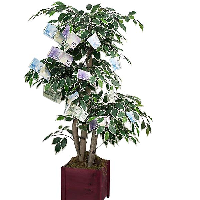
Whether you’re starting, buying, or growing a business it’s critical to determine whether or not the business is sustainable.
There are different ways to view sustainability. Some of the more important measures are money, time, energy, supply, demand, social, and environmental.
The most common measure for small business is financial sustainability. This is because cash flow shortfall can kill a business no matter how well it’s going in other aspects.
If you have a business that leaves you with even a small amount of profit after all the bills are paid, it may be financially sustainable. If the same business costs more to operate than it can capture in sales it is not sustainable. That is the simplistic view.
Of course it’s not that simple. To complicate matters somewhat, the example above would have to continue to be profitable over time in order to be sustainable. It is entirely possible to have a thriving business turn on you, even after many years of earning profits.
A privately owned business must generate at least enough profit to meet its owner’s needs. This can vary greatly, depending on the owner’s motivation. There are different reasons to own a business, such as lifestyle, making a difference, or simply doing a type of work you love to do. Even thought profit might be less important to some owners, the business still has to be sustainable.
The financial example views sustainability through the money lens, but you can use the same thought process to evaluate sustainability through the many other important angles as well. Here are a few questions you might ask about any business.
1. How much of your time will the business need? Will the business leave you enough time for a life; does your life allow you time to run a business?
2. Do you have the energy needed to sustain the business? Can you do the necessary work without burning out?
3. Will the demand for your products or services continue into the future? Will the demand increase or decrease?
4. Can you supply the products or services at sustainable levels? Can you secure supplies in a timely way, at costs that keep your business profitable?
5. Will your business be socially sustainable? How will your business treat its employees and its customers? Will you be able to attract and retain the necessary skilled workers? How will your business give back to the communities it serves?
6. Will your business be environmentally sustainable? Environmentally friendly business is smart business in today’s workplace. Increasingly, the cost of environmental impact is brought home to the source. In most cases that source will be you, the business owner.
Finally, be sure to include taxes in your calculations. Only after the taxes are paid can true sustainability be determined.
Whether starting, buying or growing your business, the best time to evaluate sustainability is before you put your equity on the line.
Is it important for a business to be socially sustainable?
How can one pre-plan a business to be environmentally sustainable?
All rights reserved. Copyrighted material.